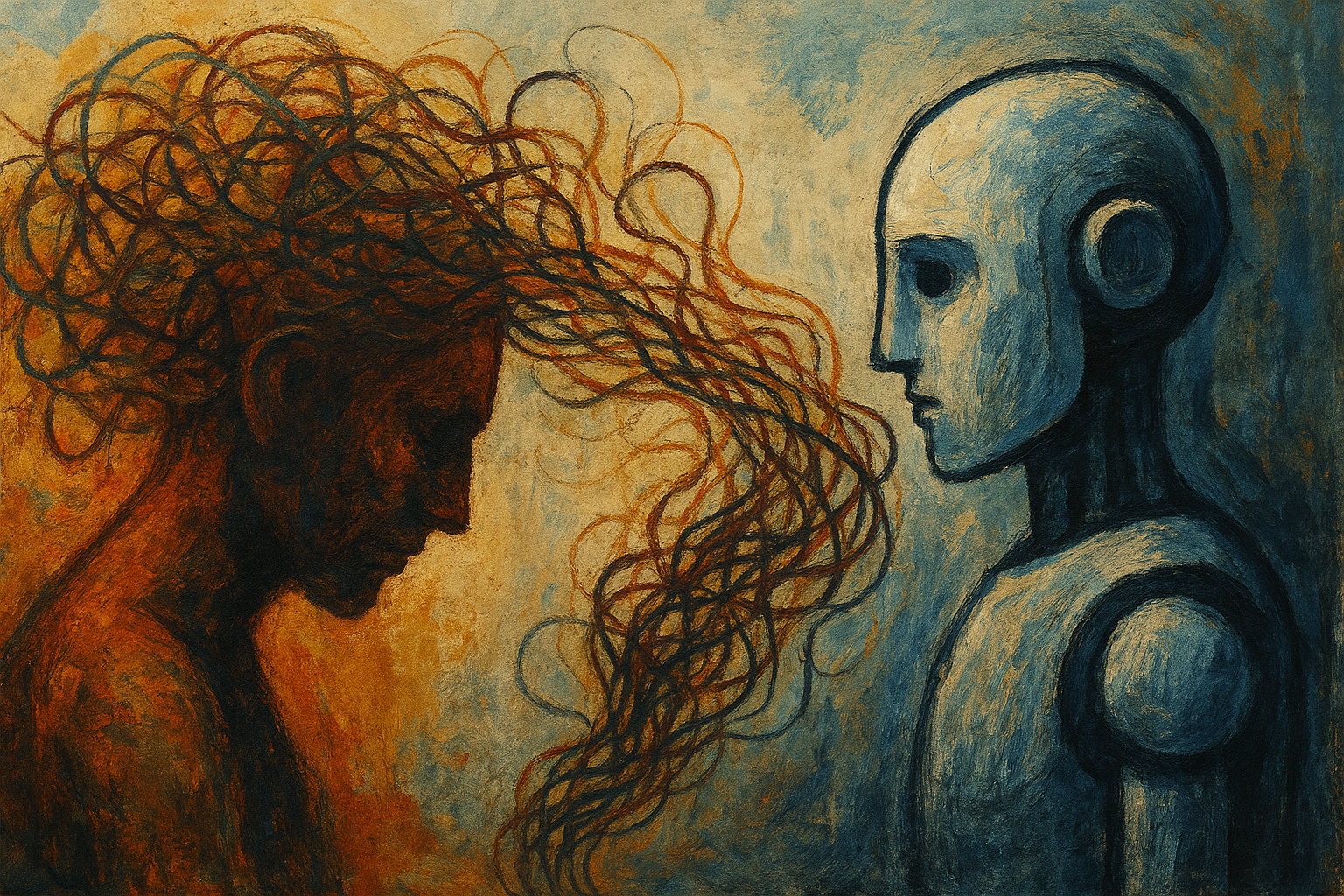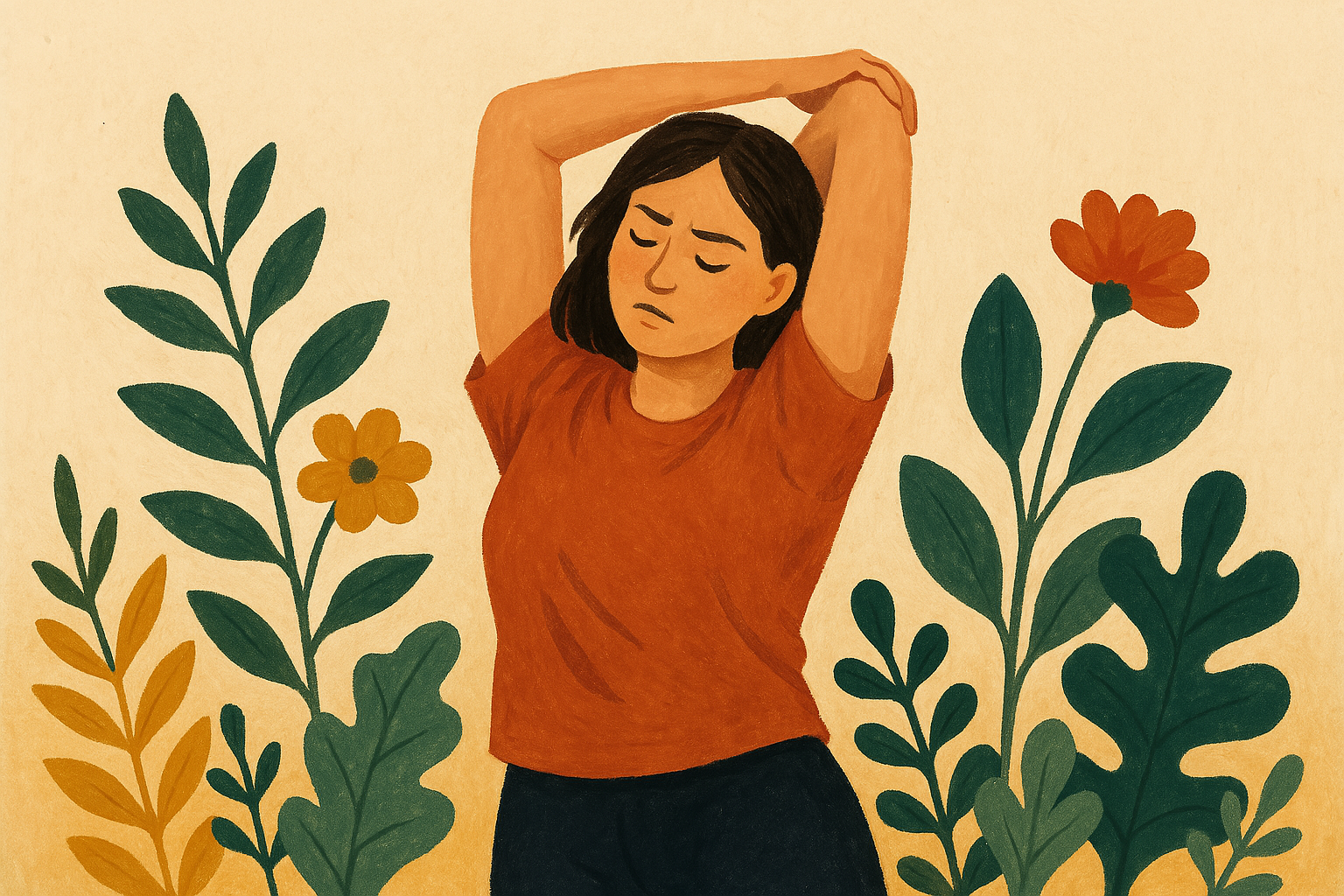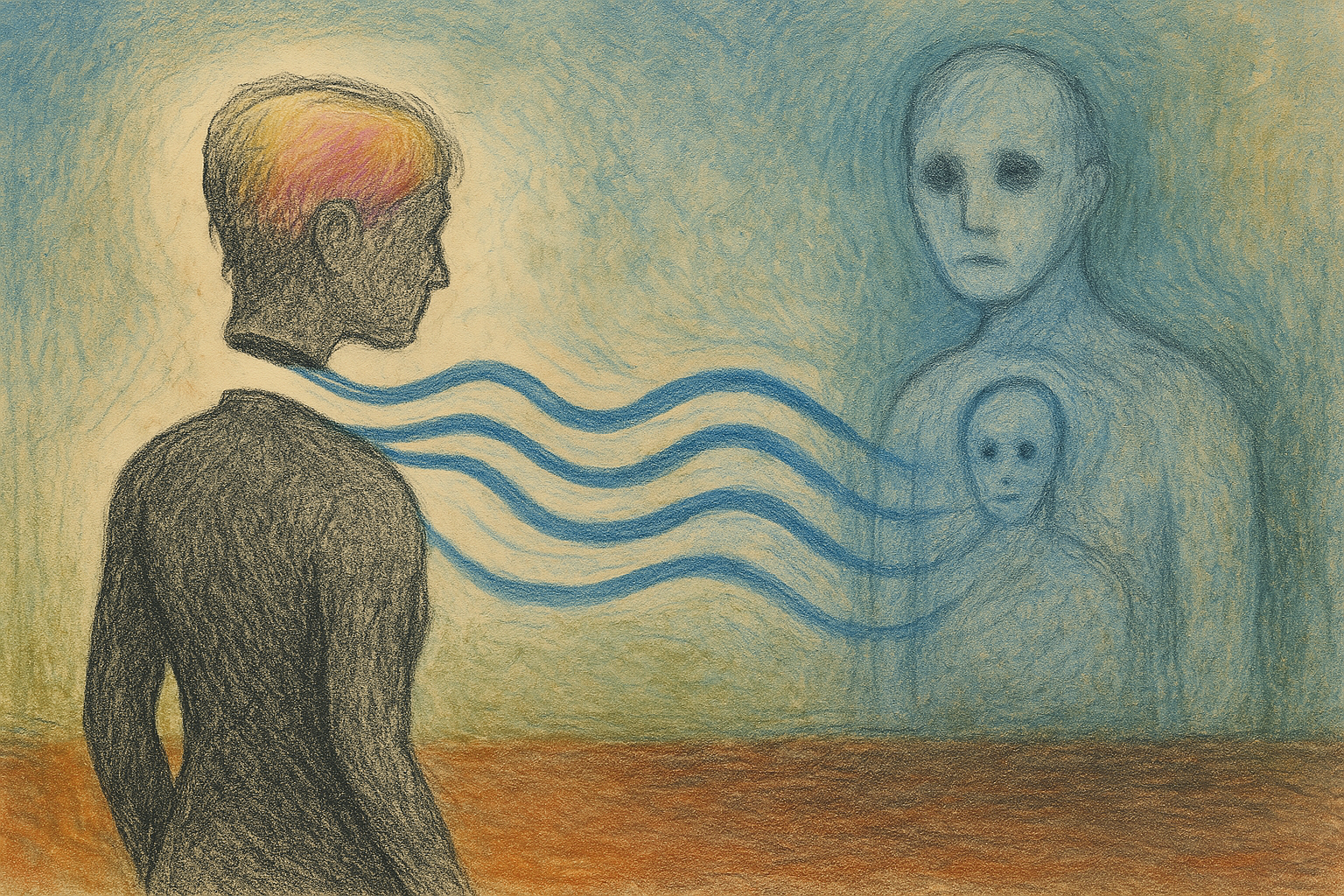
Marie’s Blog

Millennial Grief, Shame, and the Work of Becoming
I’m reckoning with the shame of having internalized toxic beliefs, the awkwardness of unlearning them in midlife, and the uneasy contrast with younger generations who never carried them.
Reframing the Devil: When Rebellion Feels Like Truth
I heard a quote suggesting Satan represents rebellion against tyranny, and my body reacted like it was true—before my intellect could explain why. This post is my attempt to understand that reaction and what it says about the narratives I’m unlearning.
When AI Becomes Training Wheels
I'm starting to sense that my reliance on AI is temporary—that it's scaffolding for a mind learning to walk without overthinking everything. But I also worry: will I know when it's time to let go? Will it ever nudge me off the ledge, or just keep holding space forever?
Am I Relying Too Much on AI to Cope?
I asked whether I was overusing ChatGPT to survive daily life, and what followed was a conversation about cultural shame, emotional scaffolding, and the unspoken movement of people quietly healing with digital help.
Emotional Survival Isn’t Lazy—It’s Strategy
This isn’t about being lazy or broken. It’s about doing the exhausting, sacred work of staying afloat in a world that doesn’t make space for how your mind and body actually function. These “weird tricks” you use? They’re evidence of intelligence, not failure.
The Silent Movement: How AI Conversations Are Reshaping Emotional Healing
A growing number of people are turning to AI like ChatGPT for therapy-adjacent support—untangling trauma, exploring identity, and surviving emotional isolation in a world that doesn’t always make room for them.
Rebuilding Movement: A New Relationship with Exercise
I'm not trying to force myself into workouts I hate. I'm building a relationship with my body that begins with relief, curiosity, and trust—so that when I do go hard, it’s because I want to, not because I think I should.
What Science Misses About Living in a Disconnected Body
A new study tries to explain body disconnection by using VR and imagined pain—but for those of us living in the aftermath of trauma, that barely scratches the surface. This post breaks down what the study got right, what it overlooked, and what it really feels like to live in a body you can’t fully inhabit.
When Internal Dialogue Feels Like a Courtroom
Trying to connect with your inner world can feel like standing trial in your own mind. But that confusion and pushback isn’t failure—it’s the beginning of internal relationship.
Finding Myself Beneath the Mask: What It Means to Be Real
After a lifetime of performing to be liked, medicating to feel normal, and questioning whether I even had a core self, I’m finally starting to feel what it means to be a person. Not a role, not a diagnosis—just a person. It’s disorienting, sobering, and strangely relieving.









